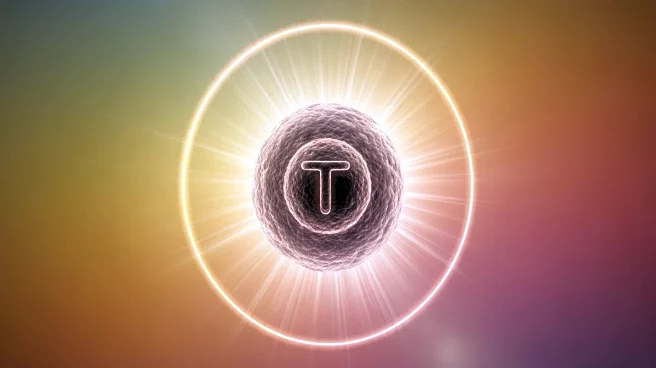What is the story about?
What's Happening?
The Nobel Prize in Physiology or Medicine has been awarded to three scientists for their pioneering work on regulatory T-cells (Tregs), which has significantly advanced the development of therapies for cancer and autoimmune diseases. Professors Mary Brunkow and Fred Ramsdell from the United States, along with Professor Shimon Sakaguchi from Japan, have been recognized for their groundbreaking discoveries related to peripheral immune tolerance. This research has been crucial in understanding how the immune system functions and prevents autoimmune diseases. Sakaguchi's initial discovery in 1995 challenged the existing belief that immune tolerance was solely due to the elimination of harmful immune cells in the thymus. He identified a new class of immune cells, Tregs, that operate throughout the body. Brunkow and Ramsdell furthered this research in 2001 by linking a mutation in the Foxp3 gene to autoimmune diseases, which Sakaguchi later connected to the development of Tregs. This has led to a surge in clinical trials exploring Treg cell therapies for various autoimmune conditions and cancer treatments.
Why It's Important?
The recognition of these scientists' work underscores the potential of Treg cell therapies in transforming the treatment landscape for autoimmune diseases and cancer. By understanding and manipulating Tregs, researchers can develop therapies that prevent the immune system from attacking the body, offering hope for conditions like rheumatoid arthritis, multiple sclerosis, and type 1 diabetes. Additionally, Treg cells are being modified to enhance immune responses against cancer cells, potentially leading to more effective cancer treatments. The ongoing clinical trials, including those by Quell Therapeutics and Nektar Therapeutics, highlight the real-world impact of this research, promising new therapeutic options for patients suffering from these debilitating diseases.
What's Next?
The award is likely to accelerate interest and investment in Treg cell research, potentially leading to more breakthroughs in the field. As clinical trials progress, successful outcomes could pave the way for new treatments to be approved and widely adopted, offering relief to millions of patients worldwide. Pharmaceutical companies and research institutions may increase their focus on Treg therapies, exploring their applications in other diseases and conditions. The recognition by the Nobel Committee may also inspire further collaboration between scientists and institutions globally, fostering innovation and development in immunology and related fields.
Beyond the Headlines
The ethical implications of manipulating immune cells for therapeutic purposes are significant. As Treg therapies advance, questions about the long-term effects and potential risks of altering immune responses will need to be addressed. Additionally, the accessibility and affordability of these treatments could become a concern, as cutting-edge therapies often come with high costs. Ensuring equitable access to these medical advancements will be crucial in maximizing their societal benefits.
















